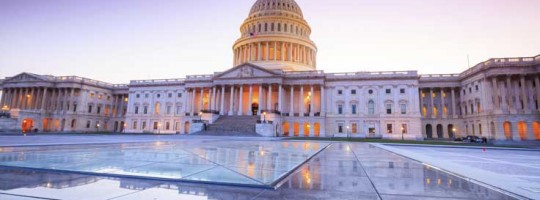Private Documents Reveal CFPB Overestimates Potential Discrimination

According to internal Consumer Financial Protection Bureau (CFPB) documents, the agency’s method for detecting discrimination by indirect auto lenders can overestimate potential bias, resulting in higher payments for lenders cited by the CFPB.
A series of private documents that were reviewed by American Banker magazine revealed CFPB officials repeatedly acknowledge that its methodology could over count the potential discrimination by firms, but say they prefer that to the alternative scenario where bias is underestimated.
The agency’s methodology “is valid and reasonable under the circumstances here, and although there may be some risk of overestimating disparities, the alternative presents an equal (and perhaps greater) risk of underestimating disparities and thus consumer harm,” wrote Patrice Ficklin, assistant director of the CFPB’s Office of Fair Lending, in a memo to agency officials in April 2013.
Ficklin’s controversial memo was written in response to objections raised by a large bank that was under investigation at that time. The institution argued that the disparities were actually less severe than what the CFPB found when the method included other variables.
The documents reveal that CFPB prosecutors overstated discrimination in probes of Ally Bank, Honda and other defendants in the $900 billion auto finance industry. There are also at least eight other banks that are under investigation, including Fifth Third and JPMorgan Chase.
Although these documents pertain to an investigation of auto lending, they illustrate how and why the agency’s “disparate impact” methodology remains such a major controversy throughout the financial services industry, including mortgage companies. Earlier this year, the Supreme Court ruled that the disparate impact theory of liability can be applied to the Fair Housing Act, a law that is enforced by the Department of Housing and Urban Development.
However, some observers, as well as former officials, suggest that the CFPB’s method may be problematic because it often overestimates the disparities, which could ultimately lead to ineligible consumers getting refunds, even though they had not been discriminated against.
“It’s an inherent issue with the use of a proxy and there really isn’t a good answer for it, which I suspect is why you don’t see much detail on the remuneration of borrowers in the two settlements that have been made public to date by the CFPB,” explained Joe Rodriguez, who formerly worked in the CFPB’s fair-lending group and is now of counsel at Morrison & Foerster. “In other words, the way the bureau applies the proxy doesn’t really work when applied to individual consumers for remuneration because it would result in remuneration being distributed to large numbers of people who in all likelihood aren’t [minority or other protected class] borrowers, or even disadvantaged by the dealer markup policy.”
At the same time, some consumer groups feel that it’s better for the CFPB to err on the side of overestimating potential discrimination, otherwise, the agency risks failing to spot it where it might actually exist.
“No proxy method is going to have 100% accuracy,” said Chris Kukla, senior vice president at the Center for Responsible Lending. “However, the methodology the CFPB has released publicly has a high enough accuracy rate and, given the size of the data set, makes it a statistically valid and appropriate method. Any argument that the CFPB is overcounting is to distract you from the significant number of people who can be affected by dealer markups. Even in a case where 235,000 consumers were assumed to be affected, if the CFPB overcounted by 10,000, that’s still 225,000 people who were overcharged.”
Many people in the auto industry argue that the CFPB is being far too aggressive, and that the agency fails to apply important data, such as credit scores of borrowers in one case, that would show that fewer consumers are actually being harmed.
Clearly, this is a heated issue with very strong opinions on both sides.












Warning: count(): Parameter must be an array or an object that implements Countable in /home/pg4b1yzvrqqo/domains/test.drivingsalesnews.com/html/wp-includes/class-wp-comment-query.php on line 399
The problem with CFPB’s proxy methodology is that it begins with the premise first, then sets out to prove it. Yes, this is a common refrain – structuring research to “prove” a premise.
If you have filled out a credit application for a mortgage you might recall the box where you are asked about your ethnicity. You are invited to check as many boxes as you like with no objective standard to be applied against your answer. If you refuse to answer the ethnicity questions, it clearly states that the person taking your credit application is REQUIRED to make an ethnicity selection based on their own perceptions. Now that word is out that members of “protected classes” might receive checks in the mail, how do you think the average person will answer the mortgage ethnicity question? How will that impact margin for error.
ALLY paid a huge amount to CFPB and reparation payments need to be issued. How will CFPB determine who will receive reparations checks? They send out a questionnaire to borrowers asking them to self describe their ethnicity. Again, if you answer a certain way, a check will come in the mail. Margin of error?
The following statement by an organization that has CFPB’s ear is truly disconcerting:
“However, the methodology the CFPB has released publicly has a high enough accuracy rate and, given the size of the data set, makes it a statistically valid and appropriate method. Any argument that the CFPB is over counting is to distract you from the significant number of people who can be affected by dealer markups. Even in a case where 235,000 consumers were assumed to be affected, if the CFPB over counted by 10,000, that’s still 225,000 people who were overcharged.â€
Is it not clear they are upset by the fact that dealers “buy” finance money at wholesale due to their large volumes and “sell” that money at a retail negotiated rate? Dealers don’t “charge” unless the rate is a subvention and there is no negotiation. These people think dealers should be in the business of financing vehicles for no margin. The FTC won’t allow dealers to get together to fix the margin so everyone pays the same. The CFPB will nail your lender if they think the lenders’ policy enables their dealers to discriminate against members of protected classes but they won’t issue protected class membership cards or tell us how they want protected class members to be treated.
Further, they are obviously skirting the intent of Congress who specified that CFPB NOT be given authority over auto dealers, with the exception of certain BHPH operators. After all, dealers are already subject to the FTC, the DOJ, and the various state AGs. This rogue agency, which claims transparency, refuses to produce internal memos relating to their strategy of circumventing the will of Congress as it pertains to auto dealers.
I think we all understand why Dodd Frank was passed. After all, a LACK of regulation is what melted down the global economy. Issuers of credit derivatives were not required to reserve capital to pay potential claims. And recently, Congress rolled back a critical measure that had prevented big banks from again risking their depositors money in speculative investments. They held us all hostage by refusing to pass a needed bill to fund the government without the included wording rolling back critical regulation. So investment banks can again privatize their profits while socializing their risk.
Its a mixed bag. Dodd Frank and CFPB have done some really good things. But by the time the powerful lobbyists pick and choose what parts to keep and what parts to jettison, I fear we will end up with a much worse situation than when we started. Elizabeth Warren was on target when she lambasted the big investment banks, especially CitiBank, for their part in rolling back the regulation of Dodd Frank. And she couldn’t have been more wrong when she accused auto dealers of overcharging consumers $26 billion in interest rate margin.